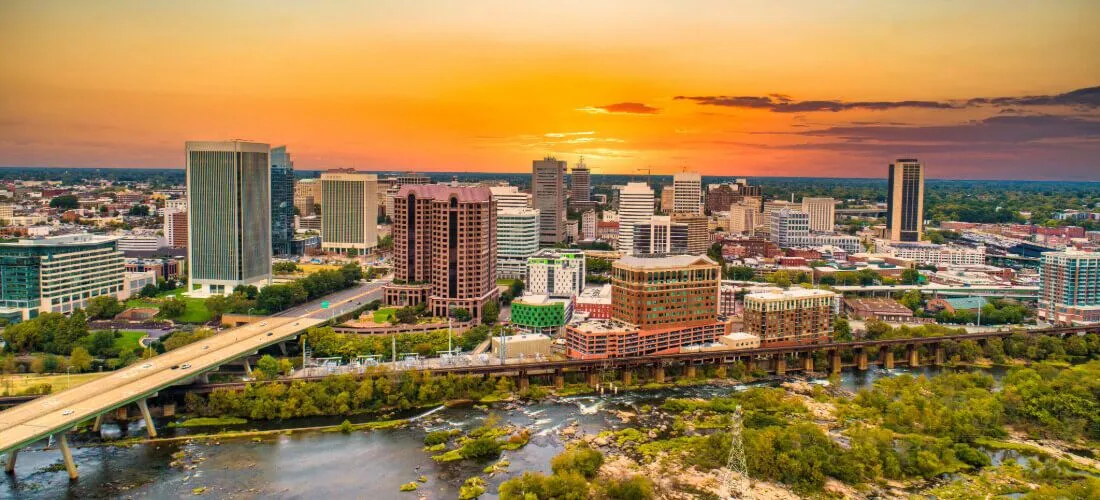
At its most basic level, community engagement is striving towards improving the quality of life in a community through both political and non-political means. Community engagement is also commonly referred to as civic engagement or public participation, and all terms reference a desire to make a positive difference in one’s community that manifests itself through action, combining knowledge, skills, values, and motivation.
Although voting often comes to mind when people discuss the topic of community engagement, it is important to know that there is much more to it than that. In fact, voting could be considered the bare minimum of community engagement. While voting is certainly a civic duty, or responsibility, engagement should not stop there.
Examples of Community Engagement
The answer to “what is community engagement?” includes activism, volunteer work, community gardening, tutoring, donating blood, environmentalism, and a whole lot more. There are virtually limitless forms of community engagement. Some of the different forms of community engagement include:
- Maintaining a community garden
- Participating in a local blood drive
- Helping set up a local farmers’ market
- Advocating for others
- Creating support groups in your community
- Attending and participating in school board meetings
- Voting in local elections
- Attending and participating in town hall and city council meetings
- Volunteering at a local food bank, animal shelter, or homeless shelter

Models for Community Engagement
Along with the many forms of community engagement, there are also different models for it. These models can include relationship-building projects that help bring a community together and form stronger bonds.
This means community education projects that provide instructional services or educate the public on certain issues, direct service projects that provide something to a group in need, and more.
These varying forms of community engagement happen in communities all across the globe. While not every community has the same level of engagement, the same percentage of the population that’s passionate about it, or the same forms of community engagement, it shouldn’t be a surprise to learn that the ones with higher levels of engagement may fare better.
Communities with high levels of engagement and multiple forms of community engagement don’t just have higher standards of living, but they face fewer wicked problems that require complex solutions.
Of course, they do still face problems, but the higher levels of engagement mean the community is better prepared to deal with them. It’s evident that life can be improved through multiple forms of community engagement because they give residents the power to make the changes they want to see.
Why is Community Engagement Important?
While “what is community engagement?” is a good question to ask, understanding why community engagement is important is also imperative in building a better place to live. In fact, communities with a higher quality of life underscore what makes community engagement so important.
Residents can build and sustain cohesive communities through engagement and help their local governments better serve their needs. Additionally, community engagement can lead to improved outcomes for the underprivileged or underserved members of a community, and it’s a driving factor in social transformation.
Why Should Community Engagement Matter to Local Governments?
Community engagement is fundamental for local governments as it leads to numerous benefits that enhance the quality of life for residents and improve overall governance.
- Strengthening Democracy – Active community engagement ensures that the voices of residents are heard in the decision-making process, thereby strengthening democratic governance. When residents are involved, they are more likely to support and trust their local government.
- Enhancing Service Delivery – Engaged communities provide valuable feedback that helps local governments improve their services. Understanding the specific needs and preferences of residents allows for more targeted and effective public services, leading to higher satisfaction and better outcomes.
- Fostering Social Cohesion – Community engagement initiatives help build strong, cohesive communities where residents feel connected and supported. This sense of community can reduce social isolation, increase cooperation, and foster a spirit of mutual aid and collective responsibility.
- Promoting Sustainable Development – When residents are involved in planning and development processes, local governments can create more sustainable and inclusive policies. Engaged communities are more likely to support and participate in initiatives that promote environmental conservation, economic development, and social well-being.
- Building Resilience – Communities that are actively engaged are better prepared to handle crises and challenges. Whether it’s responding to natural disasters, economic downturns, or public health emergencies, an engaged and informed community can mobilize quickly and effectively.
- Empowering Residents – Community engagement empowers residents by giving them a stake in local governance. This empowerment leads to greater civic pride, higher levels of volunteerism, and an overall more vibrant and active citizenry.
How Can Local Governments Increase Community Engagement?
Local governments play a pivotal role in fostering community engagement by implementing various strategies and initiatives designed to involve residents. These efforts are crucial in building stronger, more resilient communities. Examples of this include:
- Providing modern services that build trust – Providing modern services that build trust with residents is a critical aspect of community engagement. By leveraging digital solutions and ensuring transparency in communication, local governments can enhance service delivery, making interactions more efficient and reliable, which in turn fosters greater trust and participation among residents.
- Hosting community events and meetings – Regularly scheduled town hall meetings, community workshops, and public forums provide residents with opportunities to voice their opinions, ask questions, and stay informed about local issues. These events are essential for transparent communication between government officials and the community.
- Educational campaigns and awareness programs – Some local governments run educational campaigns to keep residents informed. These campaigns can cover topics such as taxpayer best practices, voter registration, the significance of participating in local elections, and ways to get involved in community projects.
All of this is necessary for democratic societies to properly function. Considering the modern political divide in America, political engagement is more important today than ever, and it looks like more and more Americans are realizing this. There were close to 160 million ballots cast in the 2020 presidential election according to PEW Research Center–that’s 20 million more than the 2016 presidential election.
Although it will take much more than voting to heal the political divide, more residents should be asking themselves “what is community engagement?” and finding what forms of community engagement they want to participate in. Governments, meanwhile, should be taking steps to help encourage more engagement.
Community engagement is essential for local governments to build trust, improve service delivery, foster social cohesion, promote sustainability, enhance resilience, and empower residents. Through various strategies and initiatives, local governments can encourage greater participation and involvement, ultimately leading to stronger, more resilient communities.










